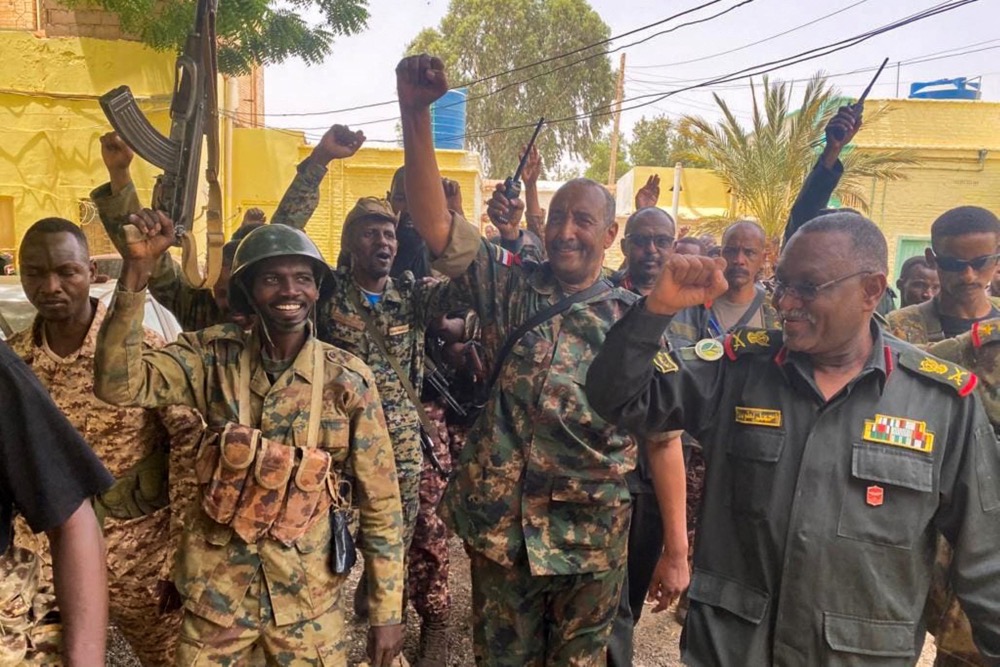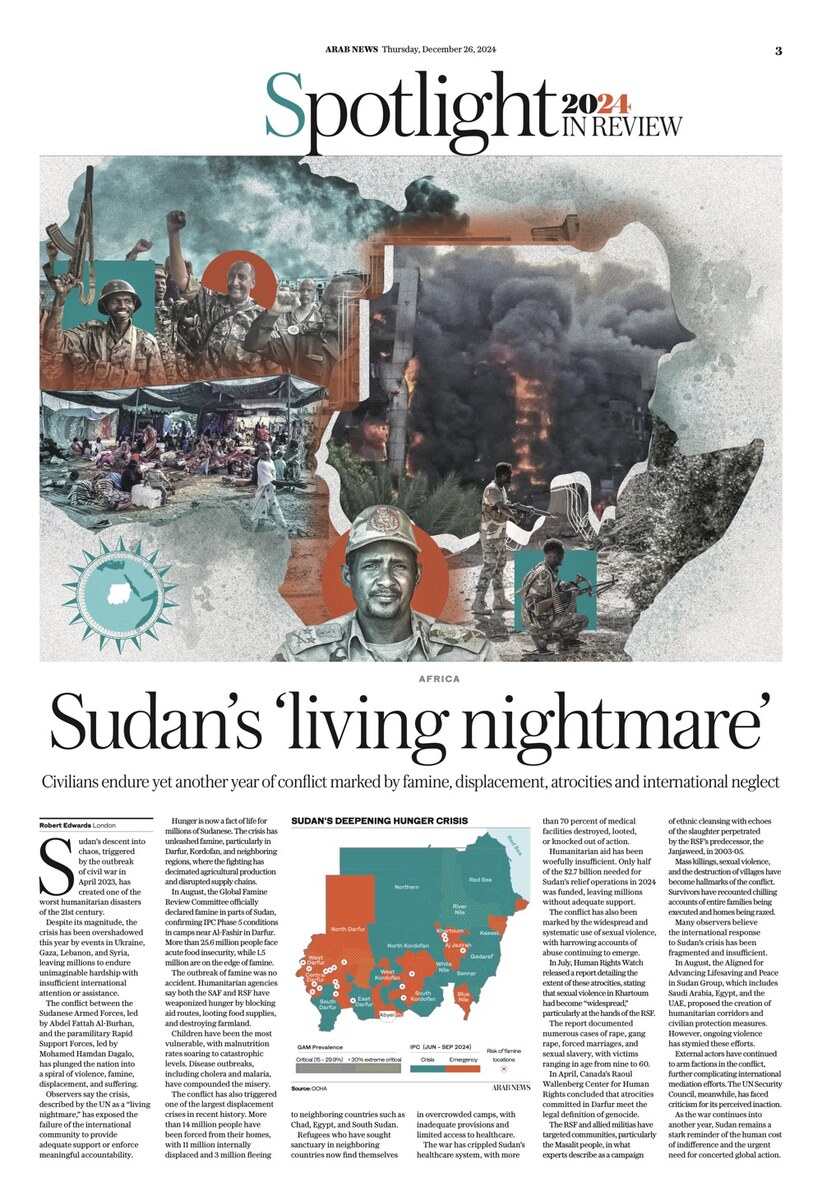NEW YORK: “Incendiary statements” by some within the Israeli leadership calling for the permanent resettlement of Palestinians in other countries have sparked fears that they are being deliberately forced out of Gaza and will not be allowed to return. A leading UN human rights Official warned the Security Council on Friday that “this must not be permitted” and that compelling Palestinians to evacuate their land might be tantamount to a war crime.
Ilze Brands Kehris, the assistant secretary-general for human rights, told council members that “the horror of the Oct. 7 attacks, for which there must be accountability, will not be forgotten.”
But the threat of forced displacement carries “particular resonance” for Palestinians, she added.
“It is seared into Palestinian collective consciousness by what they refer to as the Nakba, or “catastrophe,” of 1948 when millions of Palestinians were forced from their homes,” she said.
Brands Kehris was speaking during a meeting of the Security Council that was requested by Algeria to discuss the threat Palestinians face of forced displacement in Gaza.
She said the mass displacement began on Oct. 12 when Israeli authorities ordered civilians living north of Wadi Gaza to leave their homes and head south, ahead of the launch of Israel’s military offensive.
“While Israel stated that its evacuation orders have been for the safety of Palestinian civilians, it appears that Israel has made scant provision to ensure such relocations comply with international law, in particular by ensuring access to appropriate hygiene, health, safety, nutrition and shelter, and taking steps to minimize the risk of separation of family members,” Brands Kehris said.
“Such compelled evacuations, failing to meet the necessary conditions for lawfulness, therefore potentially amount to forcible transfer: a war crime.
“These orders have often been confusing, requiring civilians to move to so-called ‘humanitarian zones’ or ‘known shelters,’ despite the fact that many such areas have been subsequently struck during Israeli military operations, and the lack of any capacity in the shelters to absorb more people.”
More than 90 percent of the population of Gaza is suffering from acute food insecurity, she added, and many are on the brink of “avoidable, human-made” famine. She stressed that starvation of a civilian population as a tactic of war is prohibited under international law.
“The unacceptably high civilian casualty rate, the nearly complete destruction of essential civilian infrastructure, the displacement of an overwhelming percentage of the population, and the abominable humanitarian conditions which 2.2 million people are being forced to endure raise very serious concerns about the potential commission of war crimes, while the risk of further grave violations, even atrocity crimes, is very real,” said Brands Kehris.
“The prospect of widespread famine and disease as Palestinians are crammed into the tiniest slivers of the Gaza Strip along the Egyptian border, in overcrowded and dire humanitarian conditions with insufficient aid and a collapse in the provision of basic services, while Middle Gaza and Khan Younis remain under sustained aerial bombardment, cumulatively heightens the risks of further massive displacement on a widening scale, potentially even beyond Gaza’s borders. With people desperate for safety and security, this is a risk the council must be alive to.”
The right of Palestinians to return to their homes must be subject to “an ironclad guarantee,” she added.
Martin Griffiths, the UN’s humanitarian chief, warned council members that any attempt to change Gaza’s demographics must be “firmly rejected.” He described the war in the territory as one being conducted with “almost no consideration for the impact on civilians.”
For nearly 100 days, he said, the relentless Israeli military activity has resulted in tens of thousands of people being killed or injured, the majority of them women and children. The forced displacement of 1.9 million civilians, 85 percent of the total population, has resulted in traumatized individuals having to flee repeatedly as bombs and missiles rain down upon them, he added.
Griffiths described overflowing shelters, dwindling food and water supplies, and the growing risk of famine. He said the healthcare system in Gaza is on the verge of collapse, with the result it is unsafe for women to give birth, children to be vaccinated, and the sick and injured to receive treatment. Infectious diseases are on the rise, he added, forcing people to seek refuge in hospital grounds.
“There is no safe place in Gaza,” Griffiths said. “Dignified human life is a near impossibility.”
Efforts to send humanitarian convoys to northern Gaza face delays or denial of permission, putting aid workers at risk, he added.
“The lack of respect for the humanitarian notification system puts every movement of aid workers in danger,” he said.
“Colleagues who have managed to make it to the north in recent days describe scenes of utter horror: corpses left lying in the road, people with evident signs of starvation stopping trucks in search of anything they can get to survive.
“And even if people were able to return home, many no longer have homes to go to.”
The provision of humanitarian assistance across Gaza is considered almost impossible, Griffiths said, given the limited access to crucial areas. He warned that the continuing spread further south of hostilities could result in mass displacement into neighboring countries, raising concerns about the possible forced transfer of the population or deportations.
Griffiths reiterated his previous call for “far greater compliance with international humanitarian law, including the protection of civilians and the infrastructure they depend on, the provision of essentials for survival, the facilitation of humanitarian assistance at the scale required, and the humane treatment and immediate release of all hostages.”
He also repeated his call for a ceasefire and for the Security Council to take urgent action to bring the war to an end.

































